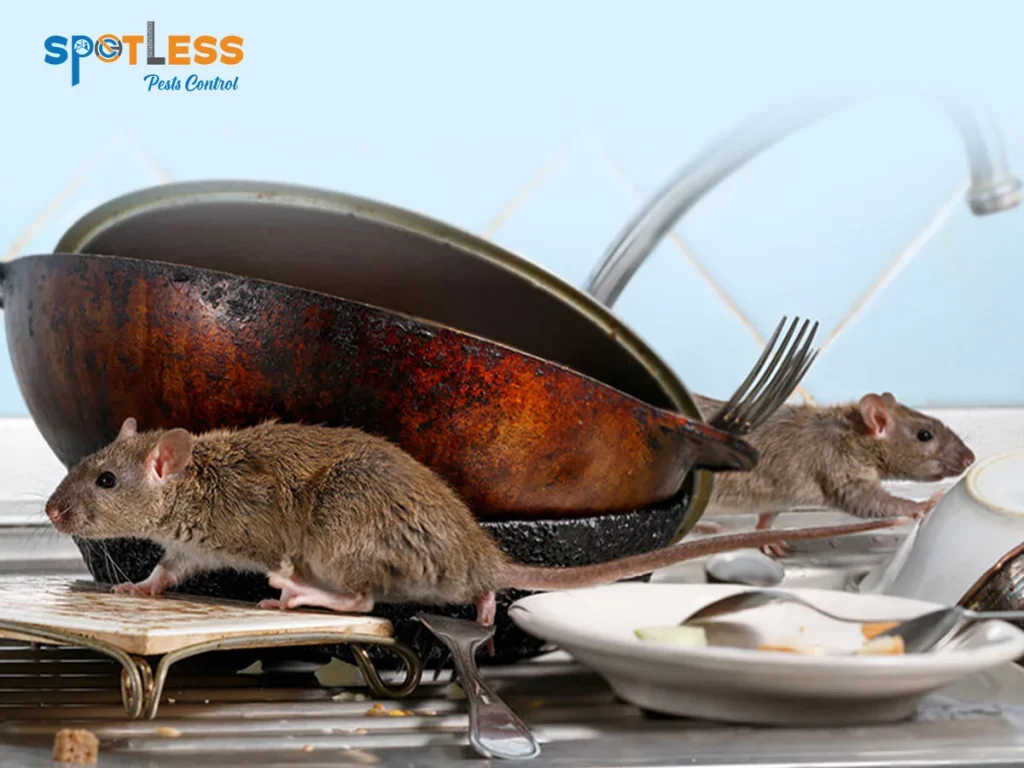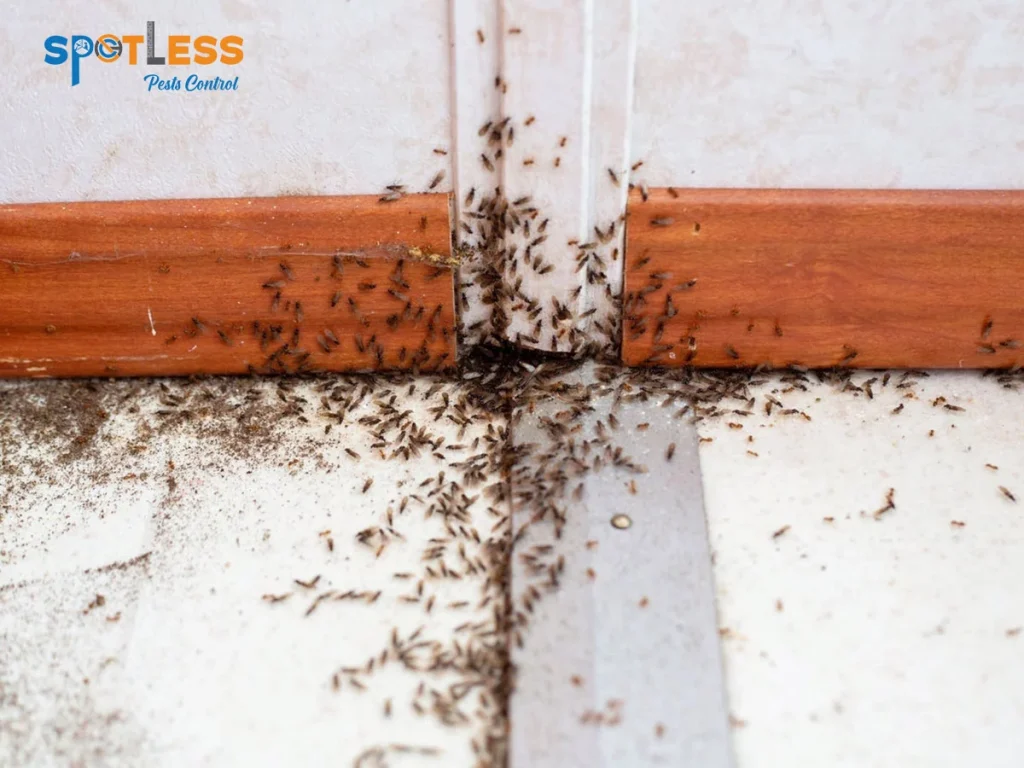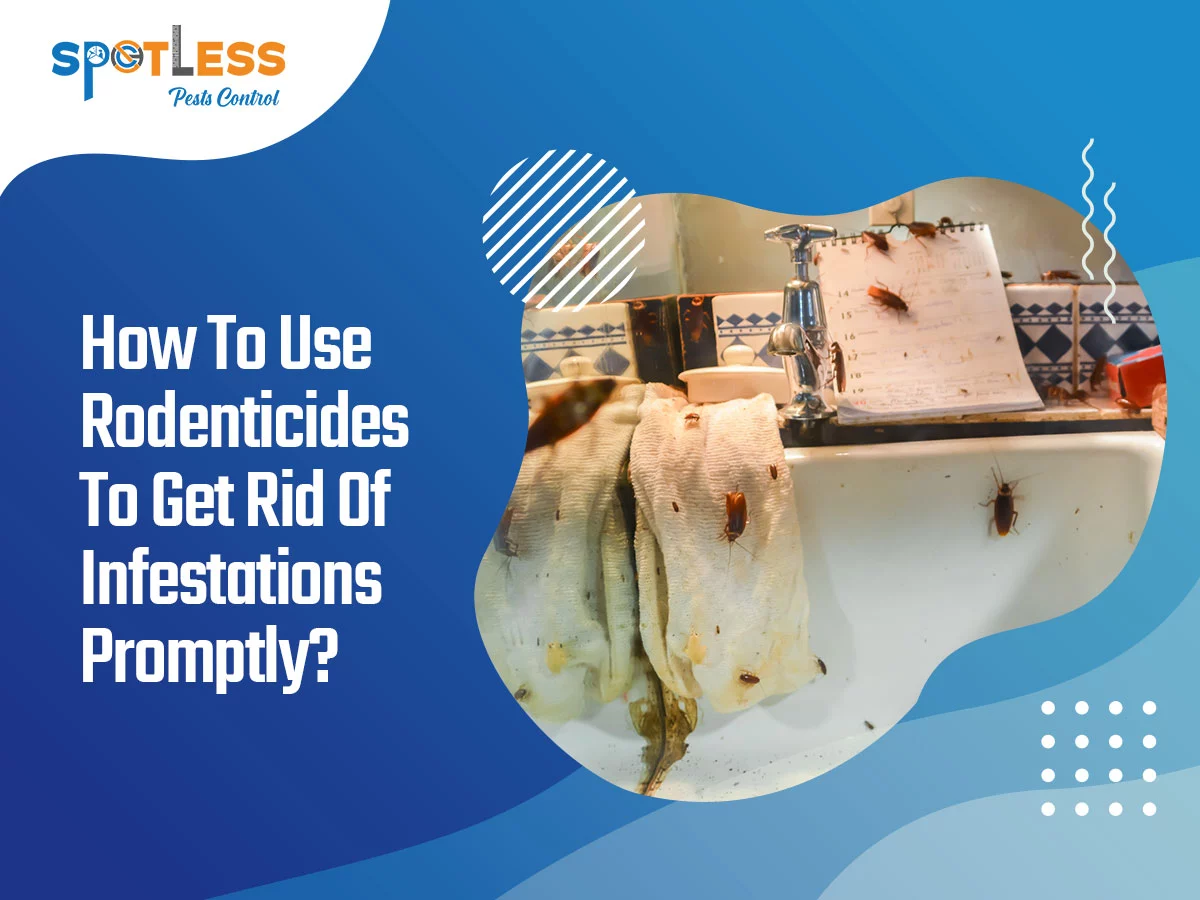How To Use Rodenticides To Get Rid Of Infestations Promptly?
Rodenticides are special chemicals used against rodents to stop their infestations right away. Rodents are a group of small mammals characterised by their sharp incisor teeth, which they use for gnawing. They gnaw on food particles and other things like plastic, wood and electrical wires. They belong to the order Rodentia, one of the largest and most diverse mammalian groups, comprising over 2,200 species. The rodent community includes rats, mice, squirrels, beavers, guinea pigs, and hamsters.
Rodents are found worldwide in various habitats ranging from forests to grasslands, urban areas, and even deserts. Apart from the distress they cause, they play a vital role in ecosystems as herbivores and seed dispersers. However, some rodent species become pests invading human settlements, causing damage to crops, property, and stored food. It’s due to this reason that rodent control measures are necessary to manage their populations and prevent potential health and financial risks.
Rodent Pest Control |Effective Strategies To Combat Them|
What Are The Most Commonly Found Rodents In Australia?

In Australia, some of the commonly found rodents include:
- House Mouse (Mus musculus)– The house mouse is a widely distributed small rodent often found in urban and agricultural settings.
- Brown Rat (Rattus norvegicus)– The Norway rat is a giant rodent commonly found in rural and urban environments.
- Black Rat (Rattus rattus)– Also known as the roof rat, it is another common rat species found in Australia, often inhabiting buildings and structures.
- Agile Antechinus (Antechinus agilis)-This small marsupial is common in Australia’s eastern and southeastern regions.
- Bush Rat (Rattus fuscipes)-Also known as the long-haired rat, it is commonly found in forests and woodlands.
- Common Brushtail Possum (Trichosurus vulpecula): Though not a rodent, possums are sometimes confused with rats or mice and are common in urban and suburban areas.
- House Rat (Rattus rattus): A different rat species found in coastal areas and urban environments.
- House Mouse (Mus domesticus): A close relative of the house mouse, it is also commonly found in human-occupied areas.
It’s essential to manage these rodents responsibly to prevent potential issues of property damage, food contamination, and the spread of deadly diseases.
How Harmful Rodents Can Be For Us?
It is harmful to humans in several ways:
Contamination of Food
Food consumed by rodents often gets contaminated along with the food preparation areas with droppings, urine, and hair.
This increases the chances of spreading bacteria and diseases, posing a risk to human health when consuming contaminated food.
Property Damage
Rodents have strong teeth that continuously grow, which makes them gnaw on various objects to keep their teeth trimmed.
While their teeth are getting trimmed, it will cause significant damage to your furniture, electrical wires, insulation, and other household items.
Allergies and Asthma
Rodent droppings and dander can trigger allergies and worsen asthma symptoms in sensitive individuals, especially in enclosed spaces with poor ventilation.
Disease Transmission
Some rodents carry and transmit deadly diseases harming humans. For example, diseases like leptospirosis, hantavirus, and rat-bite fever are common diseases transmitted through urine and bites.
Structural Damage
In their quest for shelter, rodents may burrow into walls, attics, and crawl spaces, potentially compromising the structural foundation of buildings by weakening them.
Fire Hazards
Rodents gnawing on electrical wires can create fire hazards, increasing the risk of electrical fires.
Bites and Scratches
In rare cases, rodents, when scared, can bite or scratch you, potentially leading to infections and other complications.
Due to all the above-mentioned reasons, It is crucial to take preventive measures and implement proper pest control to keep rodents away from living and working spaces, ensuring the safety and well-being of humans.
Effective measures like regular inspections, cleanliness, sealing entry points, and seeking professional pest control services are essential steps to address rodent issues effectively.
What Are Rodenticides?

They are chemicals used to control rodent populations, primarily rats and mice, to prevent damage to property and potential health risks. There are two primary divisions of rodenticides: anticoagulants and non-anticoagulants.
- Anticoagulant Rodenticides
These rodenticides interfere with blood clotting in rodents, leading to internal bleeding and eventually causing death.
Common active ingredients include warfarin, bromadiolone, and brodifacoum.
- Non-Anticoagulant Rodenticides
Unlike anticoagulant rodenticides, non-anticoagulant rodenticides have different modes of action, such as causing nervous system disruption or cellular damage.
Zinc phosphide and bromethalin are examples of non-anticoagulant rodenticides.
Using rodenticides cautiously and following proper safety guidelines is essential to avoid unintended harm to non-target animals and ensure effective rodent control.
Safety While Using Rodenticides To Counter Rodents
Safety while using rodenticides is critical to prevent harm to humans, pets, and non-target wildlife. Here are some essential safety guidelines:
- Read and Follow Instructions– Always read and follow the manufacturer’s instructions and safety precautions provided on the rodenticide label. Use the product as directed and avoid exceeding recommended application rates.
- Keep Out of Reach– Store them securely, out of reach of children and pets. Consider using tamper-resistant bait stations to prevent accidental access.
- Wear Protective Gear- When handling rodenticides or bait stations, wear protective gloves and clothing to avoid direct contact with the product.
- Proper Placement– Place rodenticide baits in areas inaccessible to children, pets, and non-target animals. Use bait stations to ensure the poison is contained and only accessible to rodents.
- Secure Bait Stations-Ensure bait stations are securely anchored to prevent them from being moved or tipped over.
- Use Child-Resistant Packaging- Choose rodenticides that come in child-resistant packaging for an additional layer of safety.
- Clear Labels– Ensure that all bait stations and containers are clearly labelled with warning signs to alert others about the presence of rodenticides.
- Clean Up Spills Promptly: If a rodenticide spill occurs, clean it up immediately, following proper safety measures to prevent exposure.
- Proper Disposal– Dispose of empty rodenticide containers and unused products according to local regulations and guidelines.
- Monitor and Inspect- Regularly inspect bait stations to ensure they remain intact and effective. Replace old or contaminated baits as needed.
- Seek Professional Help: If rodent infestations are severe or persistent, consider seeking the assistance of a licensed pest control professional. They can safely and effectively handle rodent control.
Remember, rodenticides are potent chemicals designed to control rodents, and using them responsibly is vital to prevent accidental poisoning and environmental harm. Always prioritise safety when using rodenticides to protect humans and the surrounding ecosystem.
If you are not able to tackle rodent infestation at your place, then call Spotless Pests Control today to get prompt relief from the living nightmare!




